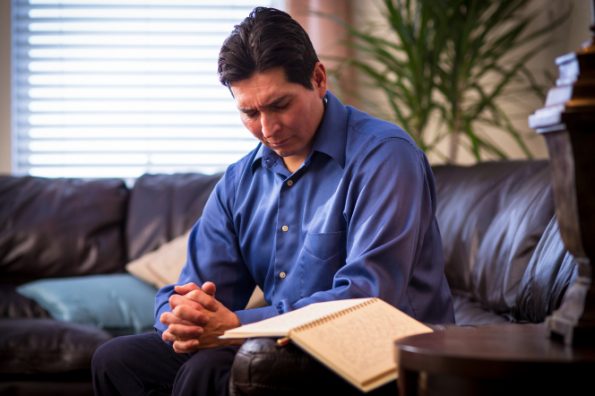“It’s not my fault I’m like this. I had a bad childhood.”
Today, a bad childhood often seems to be an excuse for bad behavior. Certainly, it’s important for parents to give their children good childhoods (and people who have suffered abuse during any stage of life should certainly seek professional help when able and if needed), and having had a great childhood can make life much easier. However, if we weren’t fortunate enough to have had a great childhood, we still have the ability to take charge of our adulthood.
 Lehi, the first prophet of the Book of Mormon, and his wife Sariah, eventually had at least eight children (six sons and at least two daughters). Their four oldest sons initially lived lives of privilege, with loving and kind parents. Despite this, the two oldest rebelled and chose to spend their lives whining and being cruel to those around them. The younger two, living the same life of privilege with the same loving parents, chose to obey their parents and follow the teachings of their religion.
Lehi, the first prophet of the Book of Mormon, and his wife Sariah, eventually had at least eight children (six sons and at least two daughters). Their four oldest sons initially lived lives of privilege, with loving and kind parents. Despite this, the two oldest rebelled and chose to spend their lives whining and being cruel to those around them. The younger two, living the same life of privilege with the same loving parents, chose to obey their parents and follow the teachings of their religion.
These choices were brought into sharper focus when the family was tested. They were advised by God to flee Jerusalem, because Lehi’s life was in danger from those who resented his commandments to repent. The family traveled in the wilderness for many years, no longer living in a fine home, but in a tent, often without sufficient food and always without the comforts of traditional life. Two more children were born into these difficult situations, who, despite a life of poverty and suffering, also chose to honor God.
The two oldest brothers, all their lives, blamed their parents and Nephi, the youngest of the first four brothers, for all the bad things that ever happened to them. They wasted their lives complaining and feeling angry. The anger built until they began to attempt murder, eventually reaching a point of wickedness from which they never returned.
Nephi, on the other hand, even though he’d had these same challenges and was the victim of their abuse and murderous plans (although each time angels protected him from death), chose to take charge, and to let God be in control.
Allowing God to be in control isn’t giving up control of your life. When you choose God, you’re making a critical decision. This choice will affect all others, and can allow you to face even the worst of trials with confidence and comfort. This isn’t to say that a Christian won’t feel sorrow or grief. Nephi often grieved—over his own inability to be perfect, over the wickedness of his brothers, and over the normal trials of mortality. But he chose not to let those things ruin his life. In the Psalm of Nephi, he instructed himself to stop complaining:
28 Awake, my soul! No longer droop in sin. Rejoice, O my heart, and give place no more for the enemy of my soul.
29 Do not anger again because of mine enemies. Do not slacken my strength because of mine afflictions.
30 Rejoice, O my heart, and cry unto the Lord, and say: O Lord, I will praise thee forever; yea, my soul will rejoice in thee, my God, and the rock of my salvation. (2 Nephi 4)
In these verses, he is choosing to take control of his life, once again, by choosing not to be angry at his brothers. He continued to sorrow for them, but chose to refrain from anger over their vicious treatment of himself and those he loved. He chose to rejoice. He took control of his attitude toward life and trials, and then chose to let God be in charge, not his brothers.
 We can’t always choose what happens to us, but we can choose how to feel about it. The Book of Mormon teaches us to take control over our lives, thereby taking away control by those who might have caused our sorrows—and more importantly, to remove control from Satan, who wants everyone to be as miserable as he is.
We can’t always choose what happens to us, but we can choose how to feel about it. The Book of Mormon teaches us to take control over our lives, thereby taking away control by those who might have caused our sorrows—and more importantly, to remove control from Satan, who wants everyone to be as miserable as he is.
This article was originally published in June 2008. Minor changes have been made.
The late Terrie Lynn Bittner—beloved wife, mother, grandmother, and friend—was the author of two homeschooling books and numerous articles, including several that appeared in Latter-day Saint magazines. She became a member of the Church at the age of 17 and began sharing her faith online in 1992.






